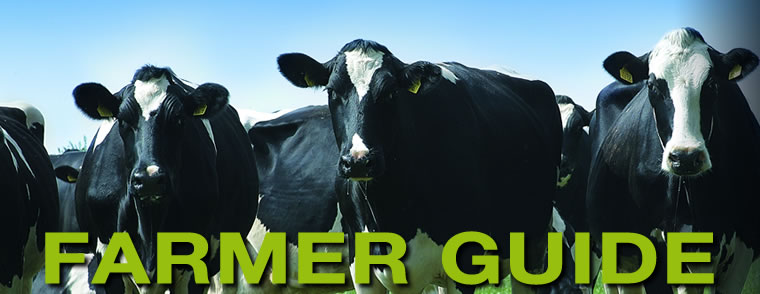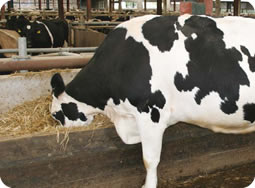Improving udder health around drying off
For optimal udder health and mastitis control the period around drying off needs
to be managed carefully. Management measures should be aimed at reducing milk
production as quickly as possible whilst preventing bacteria from entering the udder.
Abrupt drying off
- This is the most effective technique of drying cows off
- Milk her normally right up to the final milking
- Techniques such as reducing milking to once a day
or stopping milking briefly before drying off, run the
risk of an increased number of new infections
High yielding cows
- Cows giving 20 litres or more at drying off are
more likely to pick up new infections (these may cause
problems in the next lactation)
- If you see a high percentage of cows leaking milk postdry
off, it may be worthwhile altering your management
- Some farmers have been successful in reducing energy/
protein content of feed in the run up to drying off
- Take specialist advice prior to altering feeding
strategy, as any major dietary changes can affect
dry matter intakes
Environment
- Dry cows should be kept in the cleanest
accommodation available
- If turning cows out after drying off, ensure that
for at least the first few days they can be observed for
signs of mastitis
- If possible, house recently dried off cows away from
the sounds of the parlour and hungry calves to help a
rapid reduction of milk production
Dry cow therapy
- Treat cows with dry cow therapy as advised by your vet
- Always take strict hygienic precautions when administering dry cow products
– Make it a separate job to milking
– Take your time
– Follow a strict disinfection protocol (see the Farmer guide to infusion of intramammary products)
- Consider the use of antibiotic dry cow therapy and
internal teat sealant for the most comprehensive dry
cow protection and mastitis control



